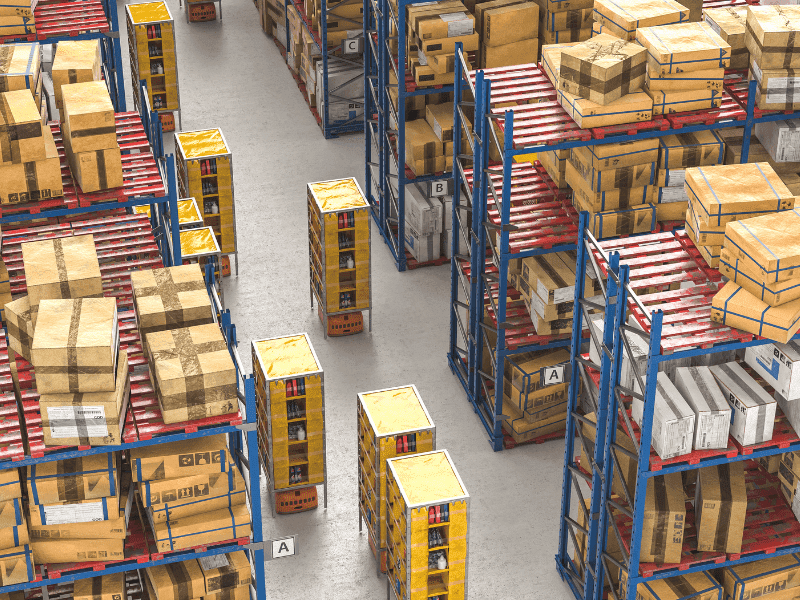In the retail world, where trends evolve by the minute and consumer demands never cease to grow, staying ahead isn’t just about keeping pace—it’s about setting the pace. Yet, even the most streamlined operations are vulnerable to common errors that can quickly erode customer trust and diminish profitability. From inaccuracies in product weights that lead to financial discrepancies to mismanaged inventories that disrupt sales, the pitfalls are many and the stakes are high.
Enter the realm of advanced weighing systems—sleek, subtle, and increasingly intelligent. These systems may resemble their traditional counterparts in appearance, but they are designed to accomplish far more than simple weighing tasks.
But how can leveraging these innovative technologies transform routine challenges into opportunities for unmatched operational efficiency?
Let’s delve into common retail errors and see how advanced weighing systems can help resolve them.
Weighing Accuracy

Traditional scales often introduce significant inaccuracies in retail settings, where even slight deviations can lead to substantial financial discrepancies or customer dissatisfaction. These inaccuracies might result from outdated technology or mechanical wear and tear, which can skew readings unfavorably for either the customer or the retailer. In cases where customers suspect they are being overcharged, the reputational damage can be long-lasting and severe.
Modern smart scales address these issues head-on by providing high-precision measurements that ensure customers are charged strictly based on accurate weights. These advanced systems use sophisticated sensors and calibration algorithms to maintain accuracy over time, protecting the retailer from revenue loss due to undercharging and preserving customer trust by preventing overcharging
Pricing Errors
Pricing errors in retail often stem from discrepancies between displayed prices and the actual charges at the point of sale. These can occur due to manual entry errors, outdated pricing data, or delays in reflecting promotional adjustments. Such inconsistencies not only lead to immediate financial losses but can also erode customer trust and satisfaction, especially if errors are frequent or blatant.
Advanced weighing systems integrated with dynamic pricing databases provide a robust solution to this issue. These systems automatically sync with the latest pricing data, ensuring that the price charged at the scale is always up-to-date and accurate. This automation significantly reduces the dependency on manual price updates and minimizes human error, ensuring that customers always receive the most accurate pricing information at the time of purchase. Furthermore, this level of precision in pricing is essential for maintaining competitive advantage and operational efficiency in a dynamic retail landscape.
Inventory Mistakes

Inventory mistakes are not just common in retail setting; they can cascade into significant operational setbacks. Additionally, these errors often contribute to retail shrinkage, a costly issue stemming from inventory loss due to theft, damage, or administrative errors. However, the integration of smart scales and smart shelves into retail operations offers a transformative solution. These advanced systems are adept at tracking the weight of items they hold, significantly streamlining inventory processes. By automating these tasks, the technology drastically reduces the opportunities for shrinkage, minimizing losses and enhancing overall profitability.
Smart shelves enhance real-time inventory tracking, both in-store and in storage areas, ensuring an accurate count of stock levels at all times. This capability allows businesses to proactively manage inventory needs, ensuring that customers find the products they seek without disappointment. Such reliability in stock availability is crucial for fostering customer loyalty and ensuring that no customer leaves the store unsatisfied.
Product Recognition
Advanced smart scales offer much more than precise weight measurement; they incorporate innovative product recognition technology that transforms the checkout process. This feature eliminates the frequent errors associated with manual entry of product IDs by customers or employees. By automatically recognizing products placed on them, these scales ensure that every item is correctly identified, regardless of human oversight or intentional manipulation.
The technology behind this capability involves sophisticated image recognition and scanning sensors that quickly discern products, verify their identity, and immediately integrate this information with accurate weight data to compute the total cost. This not only streamlines the checkout process but also significantly enhances security measures by reducing opportunities for employee theft and mislabeling.
Lack of Customer Awareness
Advanced weighing systems offer more than just precise measurements; they also serve as invaluable sources of customer data. Consider the scanner scale, which ingeniously combines a weighing function with a point-of-sale system. This integration allows the scale to gather detailed information about customer purchases, including the type and quantity of products bought.
Such data is crucial for retailers aiming to decipher consumer trends and enhance service offerings. Without this insight, businesses risk missteps due to a lack of understanding of their customers’ needs. By implementing scanner scales, retailers gain access to a wealth of information, enabling them to meet customer demands more effectively and avoid costly errors.
Streamlining the Checkout Process

In today’s retail landscape, the checkout experience can define a store’s reputation. Long lines and slow processing times are significant deterrents for customers, who may opt for competitors with more efficient checkout solutions.
Advanced weighing systems expedite the checkout process by quickly and accurately identifying products, weighing them, and calculating the price almost instantaneously. This efficiency is achieved through sophisticated sensors and software that can handle multiple transactions swiftly. By reducing the time each customer spends at the checkout, retailers can enhance customer experience, decrease abandonment rates, and increase the overall throughput of customers, particularly during peak hours. Additionally, these checkout systems reduce the pressure on employees, allowing them to focus on customer service and other valuable activities.
Ready to revolutionize your retail operations? Embrace the future of retail with our advanced weighing systems. Contact us today to learn more.




